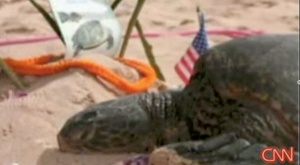My uncle died last week. Thanks, but no condolences are necessary. I saw him last some two decades ago. My mother’s oldest brother, he lived in Canada and rarely came to the States and our family rarely headed north. Once we got together for assorted Bat Mitzvahs or weddings, but we all grew apart as time grew long. We never visited. We rarely talked on the phone or corresponded even via Internet convenience. We failed to attend celebrations or even funerals — not because we did not have time, but that we lacked motive.
Today, if I passed my first cousins on the street, I would never recognize them.
My family is not close in either my maternal or paternal clans. We cannot blame distance for the dysfunction. Growing up in my hometown, my family always seemed on the oust with one or the other set my dad’s brothers and their kin. Unfortunately, the three brothers all co-owned the same retail business and the familial animosity reached histrionic proportions when the store shuttered and each sued the other.
Today, my youngest sister and I do not speak. When I attempted to reestablish communications, all my past transgressions of the past 50 years were rehashed (I’m truly sorry I laughed when you fell off the bed and gashed your head open when you were 8, but I really didn’t push you off!!!). My middle sister talks to me when the mood suits her. My parents call weekly and we discuss their latest medical test results (going to the doctor and early-bird suppers at Denny’s seem the most highly anticipated social pastimes of the aged). But we never really discuss feelings, emotions, joys, fears or sorrows. Personal barriers protect us from those truths. We end conversations with “I love you” from obligation not affection.
I bought the Tolstoy’s novel Anna Karenina merely for its first sentence: “All happy families are alike. Each dysfunctional family is dysfunctional in its own way.” I thought he must have met mine.
I often wonder why my biological family act as they do? Is it our Russian Jewish ghetto heritage (albeit neither Tolstoy nor Karenina came from that milieu)? Is it some Mediterranean hot-blooded cultural tic in Jewish, Greek, Italian and Arab people that make us more vulnerable to family hostility (and Semitic wars)? Was either the nature or nurture of my ancestors’ pedigree so tainted that we repel each other throughout the generations?
My husband’s relatives don’t act like this. His first cousins and family come to visit regularly. He knows the intimacies of his third cousin twice removed. My in-laws actually enjoy my company. So with marriage I cleave to my husband and his extended family as my true genealogy.
Another wise writer (whose name, unfortunately, escapes me now) said “Our real family is not necessarily the one we were born into.” The author spoke not just of my marital kinfolk. Friends can become our true family. So can anonymous voices we meet in cyberspace.
While I do not really mourn my uncle’s death, I do deeply grieve over the loss of members of a cyber-family I have come to know well. I mourn the death of my favorite blog.
For the last three years, we gathered together daily, our electrons converging from the far corners of the galaxy to discuss our shared interest in all things Keith Olbermann. (Not quite a strange interest if one is a liberal living in a major red state with unfairly unbalanced ultra-conservative news offerings).
I made many friends on that site although I really do not know their true names, where they reside, what they do when not blogging, or about their own family situations. I just know that we have laughed, fretted, critiqued, scorned, cheered and ruminated together on the political-social-cultural Countdown stories we shared via Internet and TV set. Together we survived the Dubya Administration, both Republican and Democratic primaries, the 2008 presidential election, Britney Spears, Sarah Palin and the ongoing Iraqi/Afghan wars.
Here and there, glimpses of our true personalities emerged. I discovered a fellow Buddhist on the group. Several of our blogsters realized they lived in the same city, or enjoyed the same hobbies, or cheered for the same sports teams. A few of us became good friends, talked off-line and helped each other through difficult personal times — illness, job problems, pet loss and, yes, family squabbles.
Because of the blog, I finally understood the appeal of a Sex in the City coterie — the true deep affection of friends who gather together to discuss life, love and Mr Big (our KO).
Perhaps this says something disquieting about society today. If we seek our most passionate connections through cable or DSL, what does that envisage for the future of civilization? However, maybe in turn, this need to connect on-line speaks volumes about the ills of humanity today.
Unfortunately, blogs (like jobs and relationships, friends and family) often require too much time, energy and maintenance to continue forever. They go adrift and fade into the pixels of cyberspace. They come and go more frequently than the neighborhood fusion restaurant. Blogs, I have learned, become unrelenting and apathetic taskmasters.
Most blogs claim only a few regular readers. To create a blog that truly captures imagination, ongoing interest, feedback, repeat readers, many lurkers, frequent commenters and the attention of its revered subject is rare indeed.
But, to create a blog that inspires a true community of friends — no a community of family — who mourn its passing as personal, shines as sheer genius and inimitability .
So, good-bye dear Either Relevant or True. And thank you, Becky and company for becoming my true cyber-family, if only for a while.
Filed under: Meditations | Tagged: "Either Relevant or True", Anna Karenina, blogs, Buddhist, cyberspace, family, Jewish, Keith Olbermann, Sex in the City, Tolstoy | 4 Comments »



